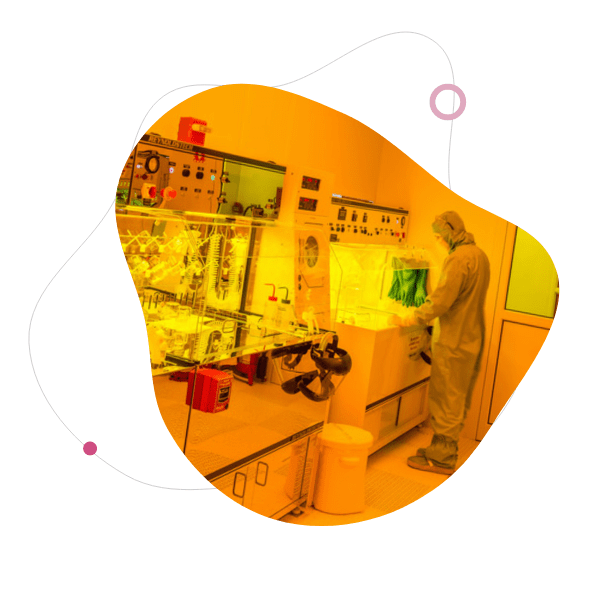The Quantum Colaboratory (Quantum Colab) is open to a broad community of users, from early adopters to well-established researchers. Of those users, the majority are academics from more than 12 Canadian Universities, with a significant number of past and present research chairs and fellows from physical societies. Significant growth in the annual users since the Quantum Colab was established, mainly driven by industry, is anticipated to continue as the value of the Quantum Colab resource becomes more well-known.
Dr. Maryam Ebrahimi, an assistant professor and Tier 2 Canada Research Chair in Low-Dimensional Nanomaterials at Lakehead University and a member of the Quantum Colab National Pool of Advisors, recently leveraged resources with the Quantum Colab to advance her research. “Our goal is to make a single molecular layer of spin-based materials and characterize their properties. Electron Spin Resonance (ESR) measurements would be an essential technique to collectively provide the spin character of these nanomaterials.” Lakehead University does not have access to an ESR, which was an essential tool for this segment of Dr. Ebrahimi’s research. “I visited and gave an invited talk at RAC, Transformative Quantum Technologies, in November 2019. There, I learnt that the facilities, including the ESR technique, are available for external use. Earlier this year, Professor David Cory informed me about the Quantum Colaboratory and invited me to join as one of its National Advisors. I learnt that the Quantum Colaboratory is open to external users across Canada.” Dr. Ebrahimi can combine the ESR data she obtained with Scanning Tunneling Microscopy at her lab (@NanoLabEbrahimi) to move her research forward.
The highly-trained, specialized staff at the Quantum Colab enhance the effectiveness and efficiency of the Quantum Colaboratory by maintaining the facilities and developing processes to integrate tools across nodes. The staff also strengthen user experience by providing comprehensive training to all users. Working with the technical and scientific staff was a fulfilling experience for Dr. Ebrahimi. Dr. Dmitry Akhmetzyanov, a research associate at the University of Waterloo and an expert in the ESR technique, provided excellent training on the instrument and the steps of the measurements. Even with no prior experience, Dr. Ebrahimi could obtain the necessary measurements in the best possible way, thanks to the dedication and expertise of the technical staff. “I would like to thank Prof. Cory and his staff, specifically Dr. Dmitry Akhmetzyanov, without whom we would not have been able to carry out ESR measurements.”
If you are interested in becoming a user of the Quantum Colab, please see “How to Start Using the Quantum Colaboratory.“
